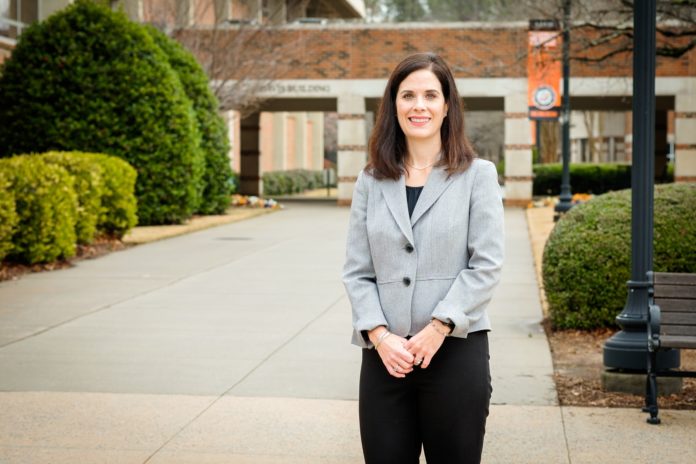This Women’s History Month, The Den is celebrating some of Mercer University‘s top leaders — our female deans. Eight of Mercer’s 12 schools and colleges are led by women, and we are highlighting each of these deans on separate days throughout March. Today, we spotlight Dr. Lisa Lundquist, dean of the College of Health Professions.
Dr. Lisa Lundquist
How long have you worked at Mercer?
Since 2006.
What was your career path to become dean?
I held various academic roles including assistant dean, associate dean and interim department chair and practiced as a clinical pharmacist specialist in primary care clinics in various health systems.
What do you enjoy most about being dean?
I have had the privilege to be involved with the College of Health Professions since 2012 when it was merely a concept. The creative process of turning ideas into realities has been very rewarding. I appreciate the opportunity to see the big picture and strategize the future direction of the College while navigating the details of creating and maintaining successful programs.
I believe success is linked to and determined by the people you work alongside. I enjoy the camaraderie of the College of Health Professions team. I am blessed to be surrounded by so many dedicated, passionate, hard-working faculty, staff, students and alumni who are focused on our College’s mission to prepare students to improve the health and quality of life of individuals and society through excellence.
What in your academic field are you most passionate about?
Interprofessional health care practice is pivotal to improving patient- and population-based health. No health profession is at the center of the health care model — the patient is at the center. Providing students with intentional interprofessional education allows learning from, with and about other disciplines to understand roles, cultures, responsibilities, values and expertise. Through working interprofessionally, communicating effectively and valuing contributions from all disciplines, we can positively impact the health of patients and populations in the state and nation.
What advice would you give to future women leaders?
Doing the right thing is often not easy — do what is right anyway. Surround yourself with people who think differently and have different experiences than you; there is such strength in diversity. Always be over-prepared. Give grace to others and yourself.










